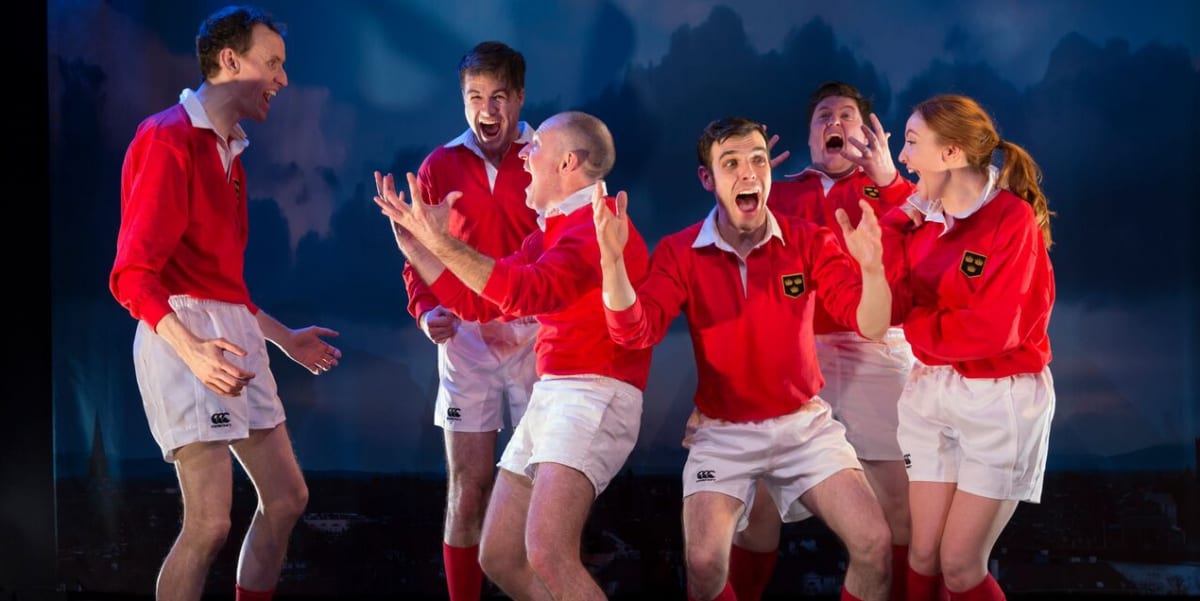Famous American sports announcer Howard Cosell once quipped, “The importance that our society attaches to sport is incredible. After all, is football a game or is it a religion?” For the Irish, the 1978 match between their rugby team Munster against the formidable New Zealand All Blacks – the underdogs claiming a 12-0 victory over one of the Earth’s most ferocious teams – has transcended sports history to become national folklore, evidenced in the physical drama / comedy Alone It Stands.
Retelling the lead-up to the now legendary victory in loving, physical, often hilarious detail, the cast of five plays over 60 roles ranging from a newborn baby to disgruntled loyals to grizzled old men conniving to score tickets to the match. This celebrated play by John Breen opens with a haka, the Maori “dance of war” designed to intimidate opponents that’s moved from the battlefield to the pitch, and quickly switches to dialogues between coaches, players, and fans. Moving from discussions of the geographical biases between Munster, Shannon, Limerick, and Dublin, to class grievances, to Munster’s grueling workouts.
The play covers the key moments from the match: excruciating training sessions in weedy fields; the long silence before the match following Tom Kiernan’s speech; the sad call for team captain Donal Conniffe that his father had died during the match’s first half. And the match’s details are interspersed with several funny counternarratives including Mary and Jerry, a couple expecting the birth of their child the night of the match. “Mary, no child of mine would be rude enough to be born during a rugby match.” That claim, and the subsequent birth layered on top of the game’s scrums is screamingly hilarious and brilliantly choreographed.
During the performance’s second half, the pace picks up, with a clear sense of frenzy. The transitions become more surreal and comical and the overall piece finds its footing. Henry Raber plays a 10-year old building the biggest, worst bonfire, “the architecture of arson.” Sarah Street has a wonderful range and physicality. And Ed Malone is a stand-out performer, voicing the people’s tension – afraid, amazed, excited to possibly win, expecting to lose. This is the epic battle of wills, the essence of sport.
For this American reviewer, it was a gaze into one of Ireland’s prize moments and an education in rugby. For the Irish playgoer, this will be a unique retelling of a story that’s now woven into the nation’s history. It was also the chance to witness an impossibly taut troupe whose energy and glee is infectious and will leave you hankering for a celebratory victory pint afterwards.

